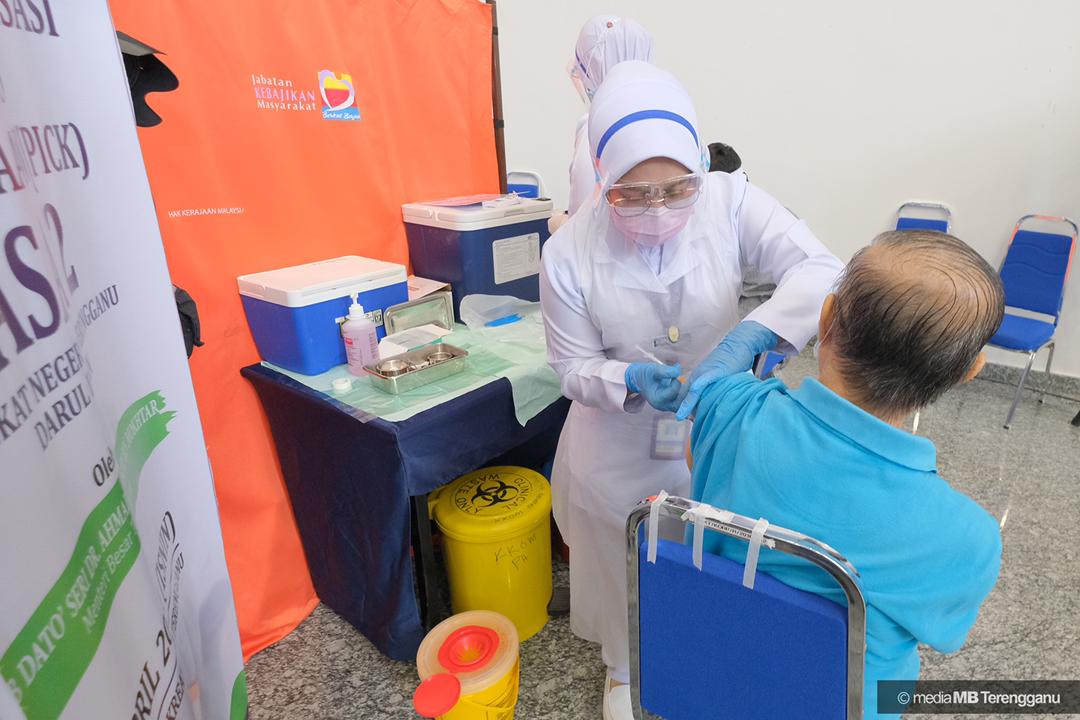KUALA LUMPUR, Sept 17 — Malaysia has become the latest country to co-sponsor a proposal at the World Trade Organization (WHO) to suspend intellectual property (IP) rules on Covid-19 vaccines, medicines, and diagnostics.
According to a summary of an informal September 14 meeting by the WTO’s Trade-Related Aspects of Intellectual Property Rights (TRIPS) Council, obtained by Chicago-based independent magazine In These Times, Malaysia now joins over 60 other WTO countries in support of the waiver.
“Welcoming Malaysia as the new co-sponsor of the waiver proposal, India emphasised that the majority of WTO members — except a handful — see the waiver as the best response to the current health crisis, as it would enable the temporary suspension of relevant TRIPS rules and would provide manufacturers around the world the freedom to operate and scale-up production of vaccines, leading to more accessibility and affordability,” the summary read.
It is unclear why the Malaysian government has now decided to co-sponsor the waiver proposal — a serious act that could discourage multinational pharmaceutical companies from investing in clinical research in the country.
At a formal December 10 meeting by the TRIPS Council last year, based on meeting minutes, Malaysia acknowledged that IP protection is “essential to the development of new medicines and vaccines”.
“We view that there is flexibility accorded by the TRIPS Agreement. Malaysia continues to promote the right balance between public interest and IP protection,” Malaysia said at the meeting.
“At this stage, taking into account the broad nature of the proposal, Malaysia may require more time to conduct stakeholder consultation and will seek further clarification from the proponents in the near future, in particular if the existing TRIPS flexibilities are insufficient to address the Covid-19 pandemic and the need to provide a clear definition of the threshold for global immunity.”
Health Minister Khairy Jamaluddin’s office referred CodeBlue to the Ministry of International Trade and Industry when asked for comments. CodeBlue has contacted International Trade and Industry Minister Mohamed Azmin Ali’s office.
Malaysia co-sponsorship comes amid ongoing “text-based negotiations” at the WTO on the proposed waiver that was initially submitted by India and South Africa last October for the global body to suspend its enforcement of key patents related to Covid-19 vaccines, treatment, and tests.
The proposal wants certain obligations in the TRIPS Agreement waived for a specific number of years, to be agreed by the WTO General Council, or until most of the world is vaccinated.
Proponents say the objective of the proposal is to avoid barriers to timely access to affordable medical products, including vaccines and medicines, or to scale up research, development, manufacturing, and supply of essential medical products during the Covid-19 pandemic.
Malaysia has a questionable reputation on IP rights in the life sciences, with the Pharmaceutical Research and Manufacturers of America (PhRMA), a trade group representing companies in the American pharmaceutical industry, calling for Malaysia to be designated a “Priority Foreign Country” in the United States Trade Representative’s (USTR) 2020 Special 301 Report.
The Priority Foreign Country listing is considered the worst classification given to foreign countries. The other listings are Priority Watch List, Watch list, and Monitoring. Malaysia has been classified as a Watch List country — meaning it has been recognised as having “serious intellectual property rights deficiencies” — since 2005.
PhRMA made note of Malaysia’s “non-transparent” move to issue a compulsory licence for a breakthrough innovation US-developed medicine that cures hepatitis C, sofosbuvir.
Malaysia’s compulsory license to obtain generics of sofosbuvir without the drug maker’s consent reportedly only treated 1,501 patients over a 12-month period in 2018. However, cooperative discussions and collaborative access policies like voluntary licensing treated over 15,000 patients over the same period in neighbouring Vietnam, said PhRMA.
Malaysia also wants to develop its own vaccine and is currently working to produce two types of Covid-19 vaccines: a messenger-RNA (mRNA) type vaccine as well as an inactivated vaccine, then-Health Minister Dr Adham Baba said last June.
Dr Adham, who is now the Science, Technology and Innovation Minister, reportedly said yesterday that Malaysia will start clinical trials by year end on a cholera vaccine it is producing. He did not give any updates on the Institute for Medical Research’s progress in developing coronavirus shots.
Malaysia, however, seems to be losing out when compared against regional peers, namely Singapore and Indonesia.
Indonesia is currently in talks with the World Health Organization (WHO) to be a global vaccine manufacturing hub.
BioNTech — a German biotechnology company that developed an mRNA Covid-19 vaccine jointly with US drugmaker Pfizer — announced last May that it will build a manufacturing facility in Singapore to produce mRNA vaccines and drugs to treat infectious diseases and cancer. BioNTech also plans to set up its Southeast Asia headquarters in Singapore.








